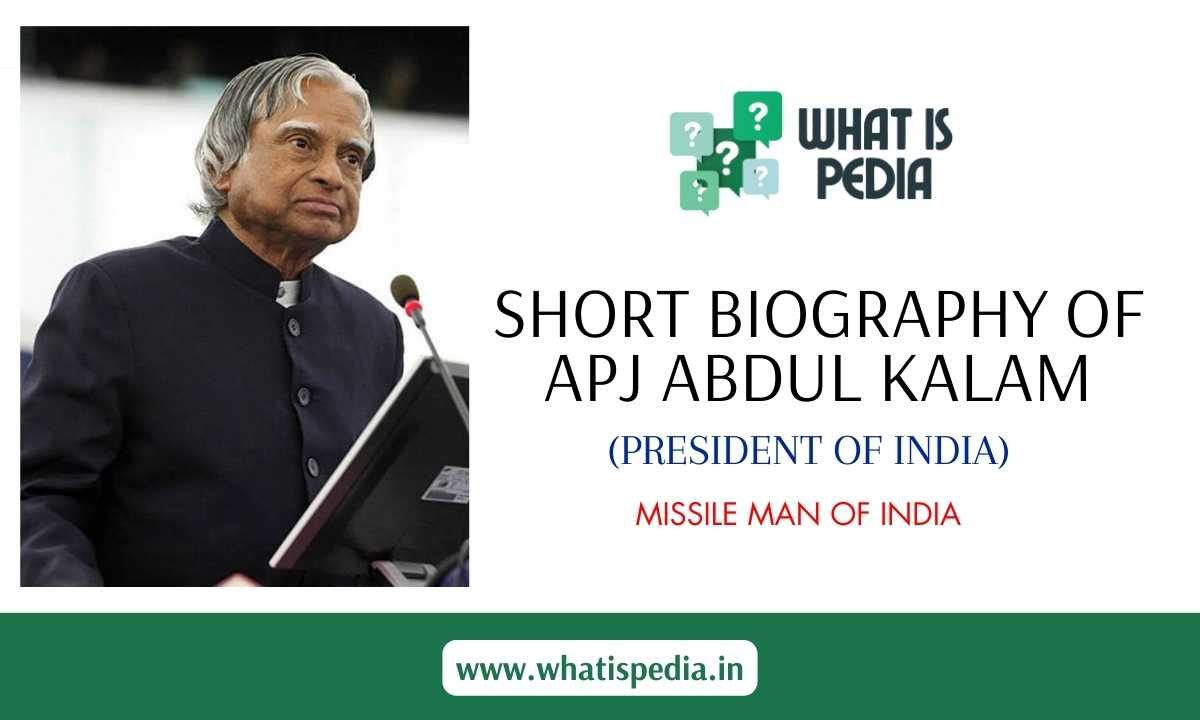Dr. APJ Abdul Kalam, popularly known as the “Missile Man of India,” was an exceptional scientist, visionary leader, and the 11th President of India. His inspiring journey from a humble background to becoming one of the most respected figures in the nation is truly remarkable. Throughout his life, Dr. Kalam emphasized hard work, education, and self-reliance, leaving behind a legacy that continues to inspire millions.
Early Life of APJ Abdul Kalam
APJ Abdul Kalam was born on 15th October 1931 in Rameswaram, Tamil Nadu. His full name was Avul Pakir Jainulabdeen Abdul Kalam. Coming from a modest family, his father was a boat owner, and his mother was a homemaker. Despite financial challenges, Kalam grew up in a nurturing and loving environment. His curiosity and love for learning were evident from an early age.
Where Was Abdul Kalam’s House?
Abdul Kalam’s house was in the picturesque town of Rameswaram, surrounded by the serene waters of the Indian Ocean. The simplicity and tranquility of his home played a significant role in shaping his disciplined and humble personality. This house is now a place of pilgrimage for admirers who wish to understand the roots of his greatness.
How Did Abdul Kalam Earn His First Wages?
As a young boy, Kalam earned his first wages by distributing newspapers. He helped his cousin, who managed a newspaper distribution business, by delivering newspapers in the early morning hours. This experience taught him the value of time, money, and dedication, shaping his work ethic.
Education and Early Career of Abdul Kalam
Kalam’s passion for learning drove him to excel in academics. He completed his schooling at Schwartz Higher Secondary School in Ramanathapuram and later pursued a degree in physics at St. Joseph’s College, Tiruchirappalli. However, his ultimate dream was to become an aeronautical engineer, which led him to join the Madras Institute of Technology (MIT).
After graduating, Kalam began his career at the Defence Research and Development Organisation (DRDO), working on hovercraft projects. Later, he joined the Indian Space Research Organisation (ISRO), where he played a pivotal role in the development of India’s first Satellite Launch Vehicle (SLV-III), which successfully placed the Rohini satellite into orbit.
The Journey of Dr. APJ Abdul Kalam
Dr. Kalam’s journey in the field of science and technology was marked by numerous achievements. He was instrumental in developing India’s missile technology, earning him the title of the “Missile Man of India.” Under his leadership, India successfully developed and tested missiles like Agni, Prithvi, and Akash, boosting the country’s defense capabilities.
Contribution to Education: APJ Abdul Kalam University
Dr. Kalam believed that education was the cornerstone of a prosperous society. His dedication to fostering innovation and knowledge among youth inspired the establishment of APJ Abdul Kalam University in Lucknow. This institution is a beacon for aspiring students, encouraging them to pursue excellence in science, technology, and research.
Abdul Kalam’s Leadership as the President of India
In 2002, Dr. Kalam was elected as the 11th President of India. During his tenure, he was widely known as the “People’s President” due to his approachable and humble nature. He emphasized the importance of empowering the youth, advocating for technological advancements, and promoting national development.
APJ Abdul Kalam Awards and Recognition
Dr. Kalam’s monumental contributions to science, technology, and the nation earned him numerous prestigious awards, including:
- Bharat Ratna (1997): India’s highest civilian honor.
- Padma Bhushan (1981): For his contributions to science and engineering.
- Padma Vibhushan (1990): Recognizing his exceptional service to the nation.
These awards reflect the profound impact of his work on India’s growth and global recognition.
Abdul Kalam Books: A Treasure Trove of Wisdom
Apart from being a scientist, Dr. Kalam was also a prolific writer. His books inspire readers to dream big and contribute positively to society. Some of his most notable works include:
- Wings of Fire: An autobiography that narrates his incredible journey from Rameswaram to the Rashtrapati Bhavan.
- Ignited Minds: A motivational book dedicated to the youth of India.
- India 2020: A visionary book that outlines his roadmap for India’s transformation into a developed nation.
These books encapsulate Dr. Kalam’s ideas, dreams, and vision for India and the world.
Abdul Kalam Birthday: Celebrating a Visionary
Dr. Kalam’s birthday, 15th October, is celebrated nationwide with great enthusiasm. Educational institutions and organizations conduct events, debates, and seminars to honor his memory. His birthday is not just a day of celebration but a reminder of his teachings and the values he stood for.
APJ Abdul Kalam Death Date: A Heartfelt Loss
Dr. APJ Abdul Kalam passed away on 27th July 2015, while delivering a lecture at the Indian Institute of Management, Shillong. Even in his final moments, he was doing what he loved most—interacting with students and inspiring the next generation. His death was a profound loss for the nation, but his legacy remains eternal.
Who Is Abdul Kalam?
Dr. APJ Abdul Kalam was a scientist, visionary, educator, and a true patriot. He dedicated his life to the service of the nation, inspiring millions through his work and words. His life is a testament to the power of perseverance, hard work, and the pursuit of knowledge.
Conclusion: The Everlasting Legacy of Dr. APJ Abdul Kalam
Dr. APJ Abdul Kalam’s life is a shining example of what one can achieve through determination and self-belief. From earning his first wages as a newspaper boy to becoming one of the most respected figures in India, his journey is nothing short of extraordinary. Institutions like APJ Abdul Kalam University Lucknow, his books, and the countless initiatives he inspired continue to keep his legacy alive.
At WhatIsPedia, we aim to highlight such inspirational lives and their contributions to society. Through his work in science, education, and leadership, Dr. Kalam showed us the path to greatness. His vision for a developed India, his passion for youth empowerment, and his commitment to service make him a timeless inspiration. Indeed, he will forever remain in the hearts of every Indian.







